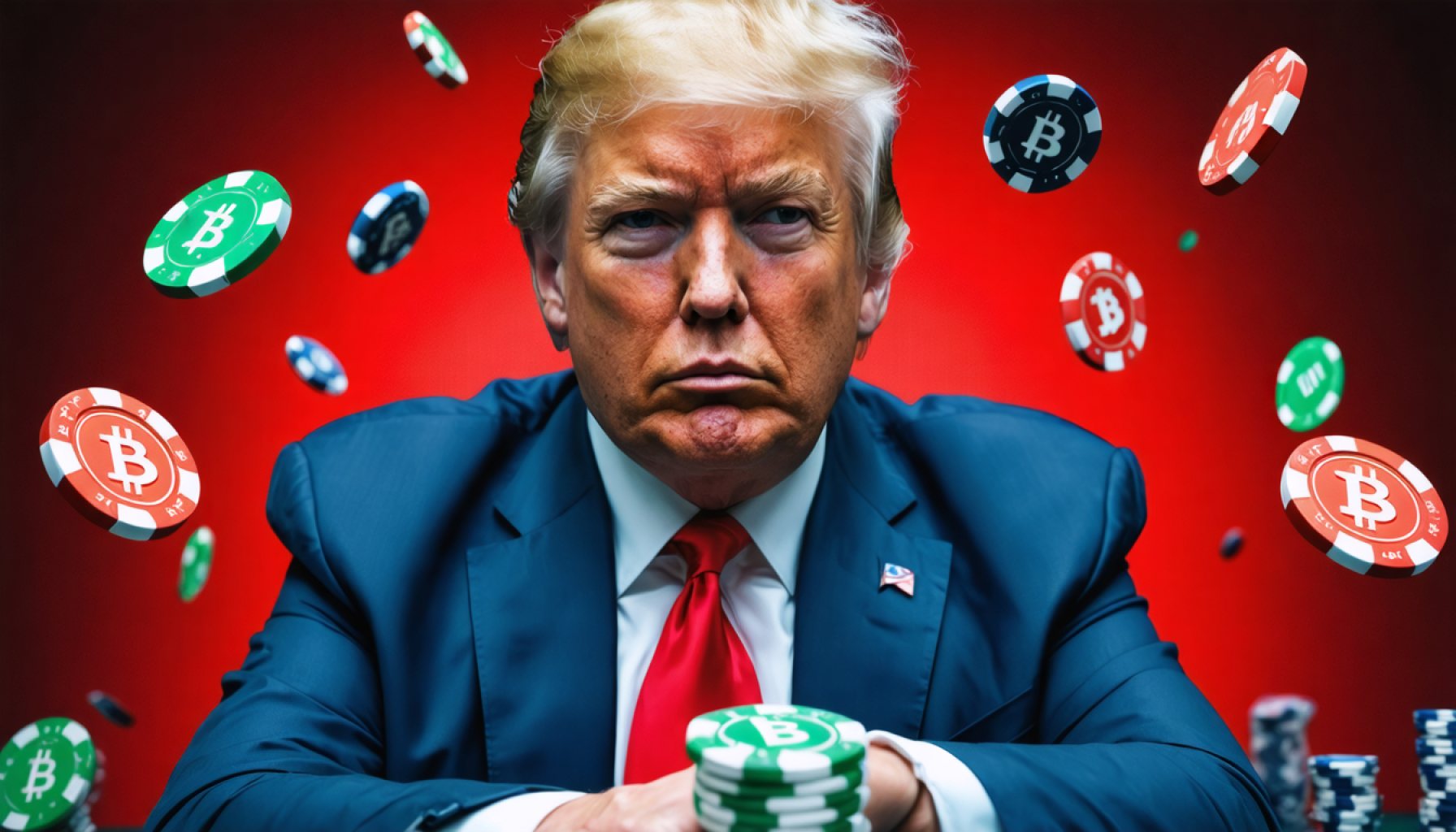- The U.S. government, under the Trump administration, is shifting its approach to cryptocurrency, favoring growth and innovation over stringent regulation.
- The Justice Department has dismantled its dedicated cryptocurrency crime unit, refocusing on traditional crimes like fraud and drug trafficking.
- Deputy Attorney General Todd Blanche critiques past aggressive enforcement, advocating for a supportive stance on crypto’s potential benefits.
- President Trump and his family are actively involved in the crypto industry, launching ventures like World Liberty Financial and a personal memecoin.
- The Securities and Exchange Commission (S.E.C.) is also reducing its regulatory activities, particularly on memecoins and unregistered exchanges.
- This shift may accelerate growth in the crypto sector but raises concerns about potential risks and a lack of oversight.
- The balance between fostering innovation and ensuring necessary regulation remains a key challenge as the U.S. forges its digital currency strategy.
Cryptocurrency, a realm of digital assets and decentralized finance, finds itself at a crossroads in the United States. The Trump administration, on its latest foray, has opted for a softer touch on the regulatory front, reshaping how the nation approaches this burgeoning sector. With bold strokes, the administration has chosen to dismantle the Justice Department’s dedicated cryptocurrency crime unit, shifting the focus onto more traditional crimes like fraud, drug trafficking, and terrorism. This new directive signals a marked departure from previous approaches, wherein cryptocurrency was scrutinized heavily as it rose in prominence.
Todd Blanche, the newly appointed deputy attorney general, views the former administration’s rigorous investigations as too aggressive and poorly executed. His rhetoric underscores a broader strategy: embrace the crypto industry, not stifle its growth. As Blanche critiques past enforcement efforts, he pivots to leveraging the positive potentials of cryptocurrencies—innovation, economic opportunity, and technological advancement.
President Trump has shown an overt fondness for digital currencies, merging business with governance. The Trump family is no stranger to the world of crypto, having inaugurated a venture called World Liberty Financial. The industry saw further engagement when Trump announced his own memecoin, emblematic of his unique approach to finance and technology. Meanwhile, his social media firm, Trump Media & Technology Group, teases plans for digital asset investment products, indicating a strong endorsement from the top.
Echoing the Justice Department’s recalibration, the Securities and Exchange Commission also appears to be softening. The agency has dismissed certain lawsuits concerning unregistered crypto exchanges and decreased staffing for its own crypto enforcement efforts. In a strategic maneuver, the S.E.C. opted not to regulate memecoins, those captivating but volatile digital tokens, given their classification outside of traditional securities.
The Trump administration’s pivot to prioritizing the crypto industry’s growth over enforcement reflects a gamble on long-term innovation over immediate regulatory action. This recalibration may pave the way for exponential growth, but it also leaves lingering questions about the risks and potential for exploitation in uncharted territories. As the landscape of digital currencies continues to evolve, the United States must weigh the scales of innovation against the imperatives of oversight, maintaining a watchful eye as the future unfolds.
The Trump Administration’s Softened Approach to Cryptocurrency: What It Means for the Industry and Investors
The Trump administration’s recent shift in cryptocurrency policy marks a significant change in how the U.S. views digital assets and decentralized finance. By dismantling the Justice Department’s dedicated cryptocurrency crime unit, the administration signals a pivot towards fostering innovation and economic opportunities in the crypto space. However, this move comes with its own sets of challenges and risks.
Real-World Implications of the New Policy
1. Impact on Innovation: The lighter regulatory touch may encourage more startups and established tech companies to explore blockchain technologies and cryptocurrency applications. This can result in an increase in new crypto platforms, services, and financial products, driving technological advancement.
2. Economic Growth: By focusing on economic opportunities and technological advancements, the U.S. could see significant economic growth within the crypto sector, potentially creating jobs and business ventures in this new digital arena.
3. Investor Confidence: The administration’s approach might foster increased confidence among investors who were previously hesitant due to regulatory uncertainties. However, the absence of stringent regulations could also lead to higher risks of fraud and scam, making it crucial for investors to conduct thorough due diligence.
Industry Trends and Market Forecasts
– Rise of Memecoins: With the SEC pulling back on regulating memecoins, there could be a surge in the creation and trading of these tokens. Although highly volatile, they have a considerable following, and their popularity may continue to rise.
– Decentralized Finance (DeFi) Surge: As traditional oversight loosens, decentralized finance could see substantial growth, offering services like lending, borrowing, and trading without intermediaries. According to recent studies, the DeFi market could grow several-fold by 2025.
Pros & Cons Overview
Pros:
– Encourages innovation and economic growth.
– Increases U.S. competitiveness in the global crypto market.
– Spurs job creation and new business opportunities.
Cons:
– Increased risk of fraud and scams.
– Potential for market manipulation without strict oversight.
– Challenges in balancing innovation with consumer protection.
Actionable Recommendations for Investors
1. Conduct Thorough Research: Before investing in any cryptocurrency, conduct thorough research on the token’s background, use case, and team.
2. Diversify Your Portfolio: Given the inherent volatility in the crypto market, diversification can help mitigate risks and potential losses.
3. Stay Informed: Keep abreast of the latest industry developments and market trends. Follow reputable sources and platforms, such as CoinDesk or CoinTelegraph, for updates.
4. Beware of Scams: With relaxed regulations, the risk of fraud is higher. Always verify the authenticity of new platforms or tokens before investing.
Conclusion
The Trump administration’s recalibrated focus on cryptocurrency could act as a catalyst for growth and innovation within the United States’ digital finance landscape. However, as opportunities expand, so too do the risks associated with lesser regulation. It becomes imperative for both investors and policymakers to navigate this evolving terrain with a blend of enthusiasm and caution, ensuring a balance that fosters growth while protecting stakeholders.
